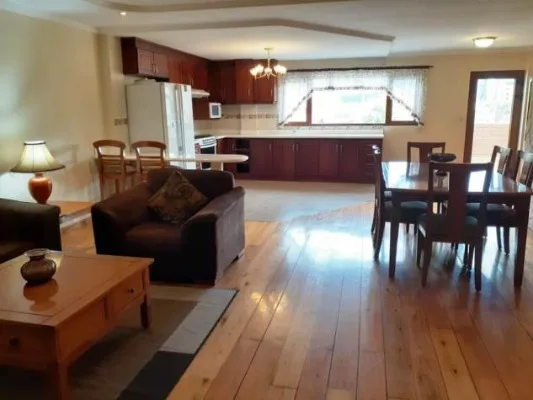Canadian woman establishes a craft beer brewery in Cuenca’s El Batan neighborhood
By Lucinda Elliott
Within a year of moving from Montreal to Cuenca, Deborah Debas began to experiment with home brewing. She and her husband Mathieu had wanted to live somewhere warmer than Canada and settled in Ecuador’s third-largest city in 2012. Debas, 36, was on maternity leave and Mathieu’s “fairly flexible” profession as a computer programmer meant he could work remotely.

Cuenca brew master Deborah Debas.
Soon after the move, however, Mathieu lost his job. “We needed to find something [else] and brewing seemed like a good idea,” she says. “I signed him up for a brewing class while on vacation to visit family in Montreal and the beer business went from there.”
In 2014 their first 20-litre batch — a dark ale with a hoppier, richer taste than pale Ecuadorean lager — proved to be popular with Cuenca’s expat community. Nórdica, the company they founded that year, is now one of eight microbrewery businesses in Cuenca, the crafts capital of Ecuador and the home of the Panama straw hat. Yet it is the only local beer brand made by a North American.
An estimated 5,000 foreigners have settled in the colonial city of half a million people since 2012. A year-round springlike climate, with sunny mornings and cooler rainier afternoons, and affordability, are the key attractions. Despite the altitude of 2,500 metres above sea level, temperatures in Cuenca seldom drop below 10C or go above 25C.
“Cuenca was the first place we found a French school,” says Debas, although the couple’s children, aged nine and six, are still the only “real” French-speaking students in their classroom. Most are locals who speak Spanish. “In about two-and-a-half months my kids were fluent,” she says, and soon started to make new friends. Cuenca’s expat community is small but growing.

Nórdica Brewery is in the El Batan neighborhood.
Their neighbourhood, El Batan, is believed to be the site of a short-lived pre-Columbian settlement, and is close to the Nórdica brewery. The area is so popular with immigrants that it is now known as “Gringolandia”, gringo being a Spanish term for foreigner.
The attractions include high-quality housing along the river Tomebamba, plus the presence of one of the city’s few high-end hotels.
Snowbirds — typically North American retirees who fly south for a warmer climate — began flocking to the area eight years ago after several websites and magazines anointed Cuenca the “best city in the world” for foreigners to retire. Ecuador does not tax Americans’ social security income; trips to the doctor are cheaper than in the U.S., and property taxes are low when compared with Canada and Europe, with further discounts available for residents aged 65 or over.
Coming from Montreal, a place “open to new tastes”, Debas found Cuenca’s restaurant options were limited. The international residents are, however, triggering a change in what is on offer: entrepreneurs are opening pop-up restaurants, ice cream parlours and French-style coffee houses.
It is not only foreigners who are developing a liking for Nórdica’s bolder tasting beer. Ecuadorians, says Debas, drink a lot of beer and are consuming more of it because it is a moderate alternative to caña, the national drink, a spirit made from sugarcane.
One challenge for Debas is the cheap local lager. “Coming in with a [different and more expensive] product, still called beer, can be a hard sell,” she says. Instead of using locally grown corn, her craft beer blends malt sourced from cooler climes with a range of other ingredients. Debas charges up to $3 for a 330ml bottle of craft beer, which compares with $1.50 for a half-litre bottle of Pilsner.
Nórdica is still a start-up, producing 2,000 litres of beer a month, but everything it makes, it sells. “It’s a good problem to have,” says Debas, “but we don’t have enough stock to export to Quito [Ecuador’s capital city] let alone internationally.”
As general manager, Debas oversees the business day-to-day (Mathieu is working as a computer programmer again) but being a female entrepreneur in the brewing industry has proved to be less of a challenge than she had first thought.
Historically women have been responsible for producing chicha, a fermented drink made from cassava root in the Amazon rainforest, so brewing is not a strictly male profession in conservative Ecuador.
“If you look at the [street] markets and the people actually doing the business, it’s usually the women. They’re the ones closing deals,” says Debas.
Regular fairs and a busy calendar of cultural events help support the 50,000 microbusinesses in Azuay, the province of which Cuenca is capital. From basket weavers to milliners, most are craftswomen from the surrounding hilltop villages.
“My life is very much here,” Debas says. “And we have a third baby on the way,” she adds, referring to an oatmeal stout that Nórdica is brewing.
___________________
Credit: Financial Times, www.ft.com
















